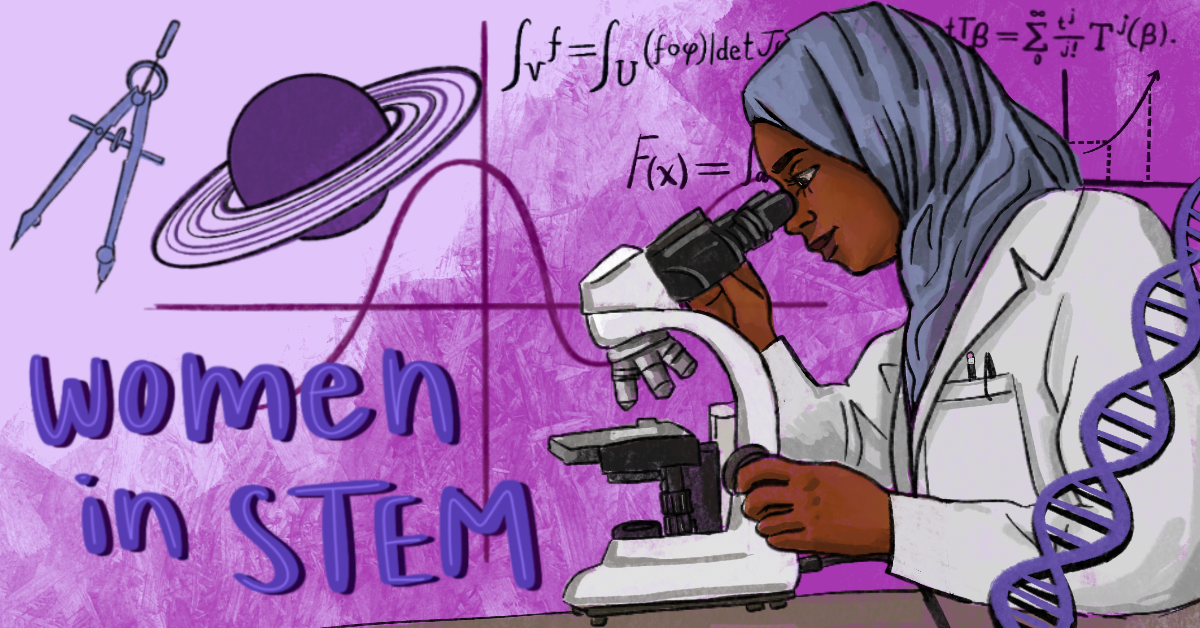Breaking the glass ceiling: Professor Emerita Poë discusses the state of women in STEM
While female representation in STEM fields has improved over the years, work needs to be done to increase the number of women pursuing graduate studies and the ratio of female-to-male faculty members.
“The declaration of an International Day of Women & Girls in Science by the United Nations without the action or support for women in gender repressive societies is a gesture that does not go unnoticed,” says Professor Emerita Judith C. Poë in conversation with The Medium. As the first female chemistry professor at University of Toronto Mississauga (UTM), Professor Emerita Poë has contributed to promoting female leadership within the Department of Chemical and Physical Sciences.
She discusses various achievements made by UTM science, technology, engineering, and mathematics (STEM) alumna, including Dr. Roberta Bondar and Dr. Eugenia Duodu. Dr. Bondar received her Doctor of Philosophy in Biology at UTM and went on to become the first Canadian female astronaut. Dr. Duodu graduated with a Bachelor of Science and Doctor of Philosophy in Chemistry at UTM and is the CEO of Visions of Science Network for Learning Inc.—a charity focused on transforming communities through equitable access to STEM fields.
In 1999, Professor Emerita Poë broke the glass ceiling at the Canadian Society for Chemistry by being elected as the first female president of the society. Professor Emerita Poë also became the first president of the society whose work was in the area of STEM education, facing discrimination for her gender as well as her role in an educational discipline. Her presidency ended in 2000, and numerous female presidents have since been elected and carried on the work to improve women representation.
Professor Emerita Poë’s efforts were recognized by the Office of the Dean in 2021, when she was appointed as a special advisor to previous UTM dean, Rhonda McEwen. In her role, Professor Emerita Poë’s worked with undergraduate student web programmer, Nadhira Andjaina, and the executive assistant to the dean, Rachel Hughes, to create a website called WISDOM@UTM. The goal of the site is to celebrate the scholarly work and achievements of female faculty, alumna, and graduate students in the STEM disciplines at UTM. The site also highlights conferences and research opportunities directed towards female students in STEM.
Professor Emerita Poë believes that at UTM female representation at the undergraduate level has come a long way since her own university experience. When Professor Emerita Poë was completing her undergraduate degree, students were assigned a faculty mentor, and she explains: “My mentor wished me well in my studies and said that despite my academic performance, to dismiss any thought of a reference letter because he did not believe women belonged in the Chemical and Physical Sciences.”
It was not until the early 2000s that the hiring of women faculty began to increase. Currently at UTM, there are eight female faculty members in the Department of Chemical and Physical Sciences. While female faculty still represent less than 30 per cent of the department, it is a step forward in representation, and one against patriarchal ideologies. Despite the lack of discrimination on hiring female faculty, the pool of female applicants remains small.
Professor Emerita Poë contends that work needs to be done to encourage women to pursue graduate studies, and to increase the pool of applicants for female faculty and other leadership roles. She remains hopeful.

